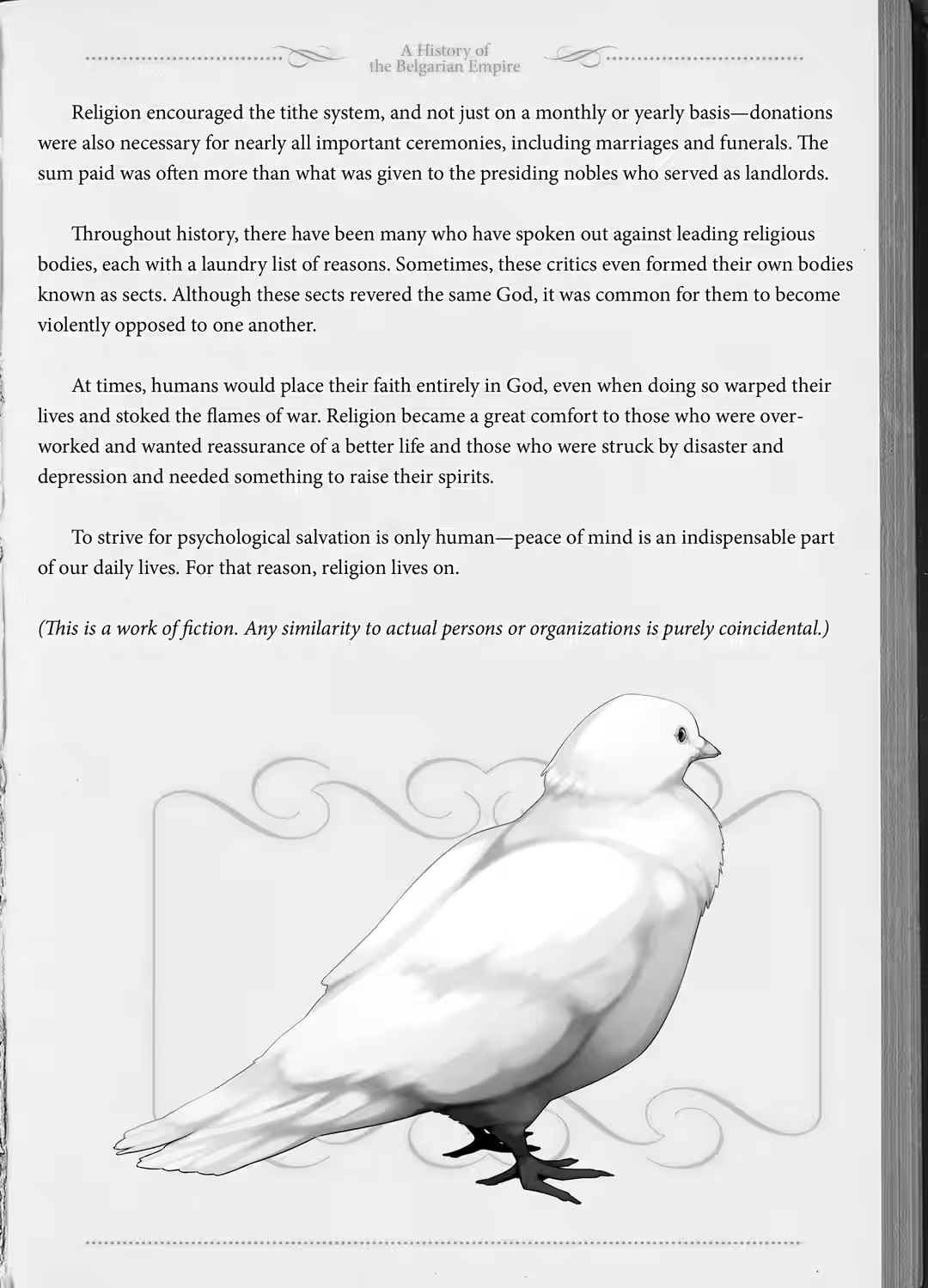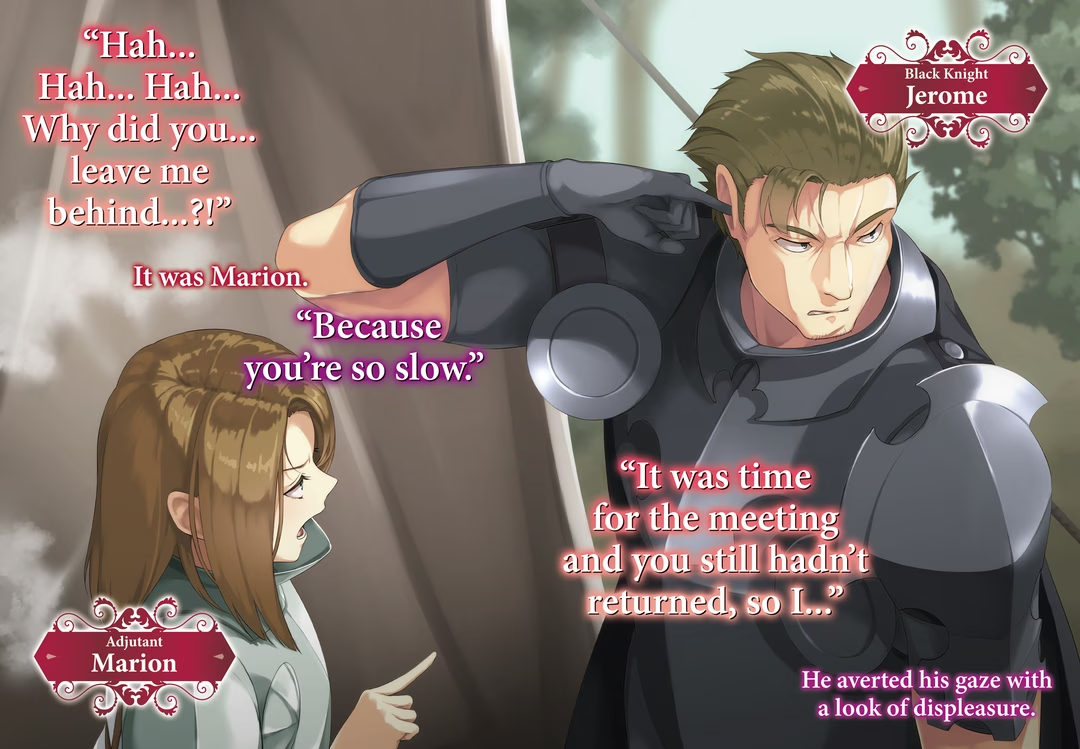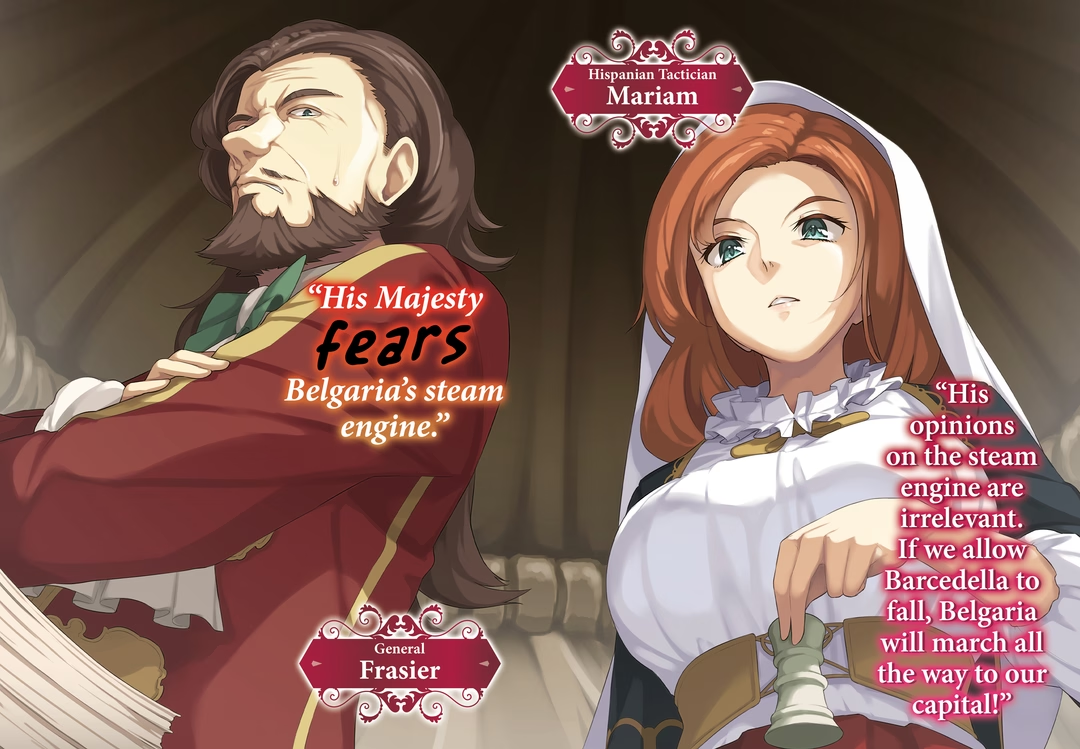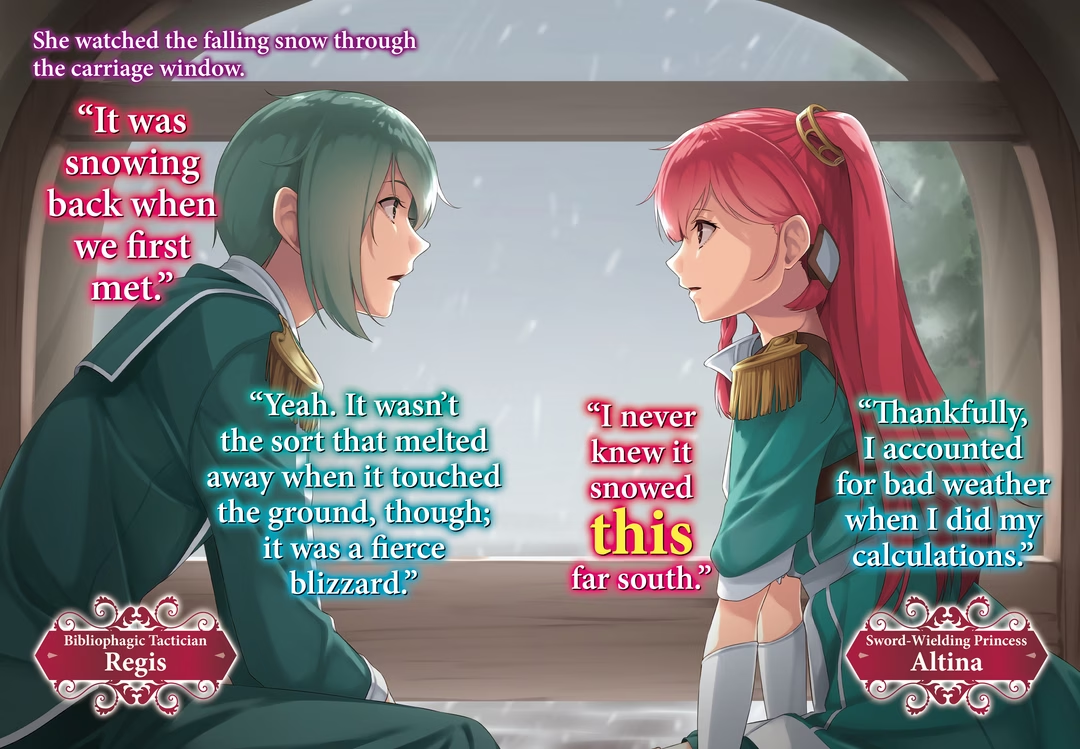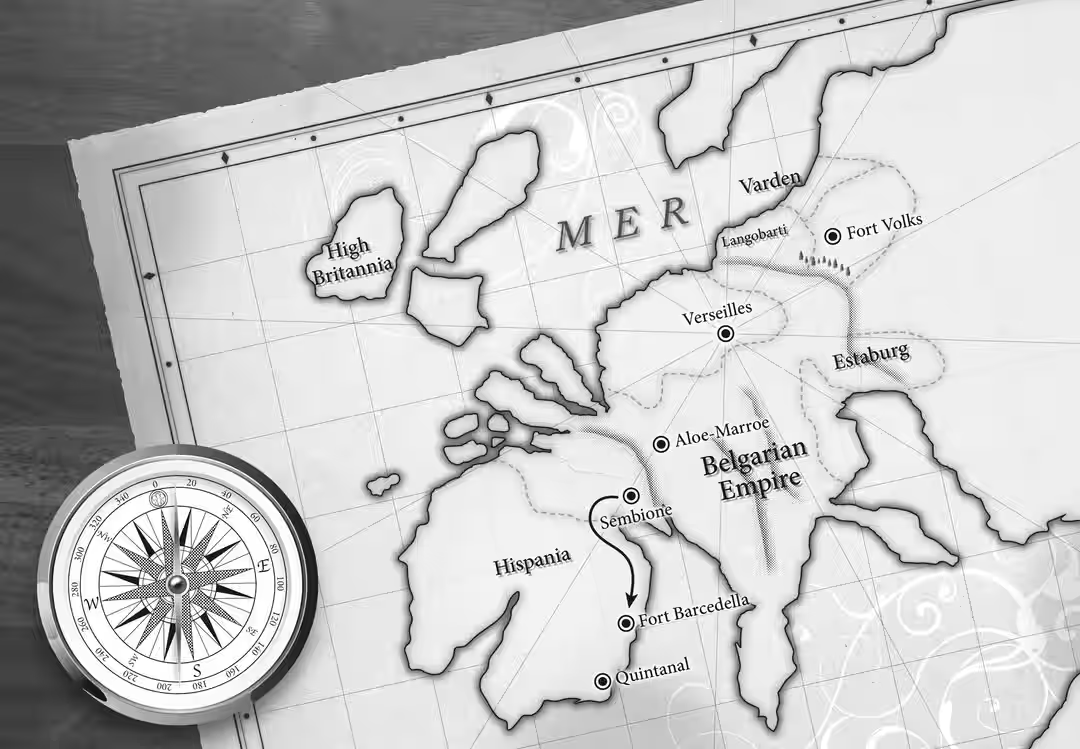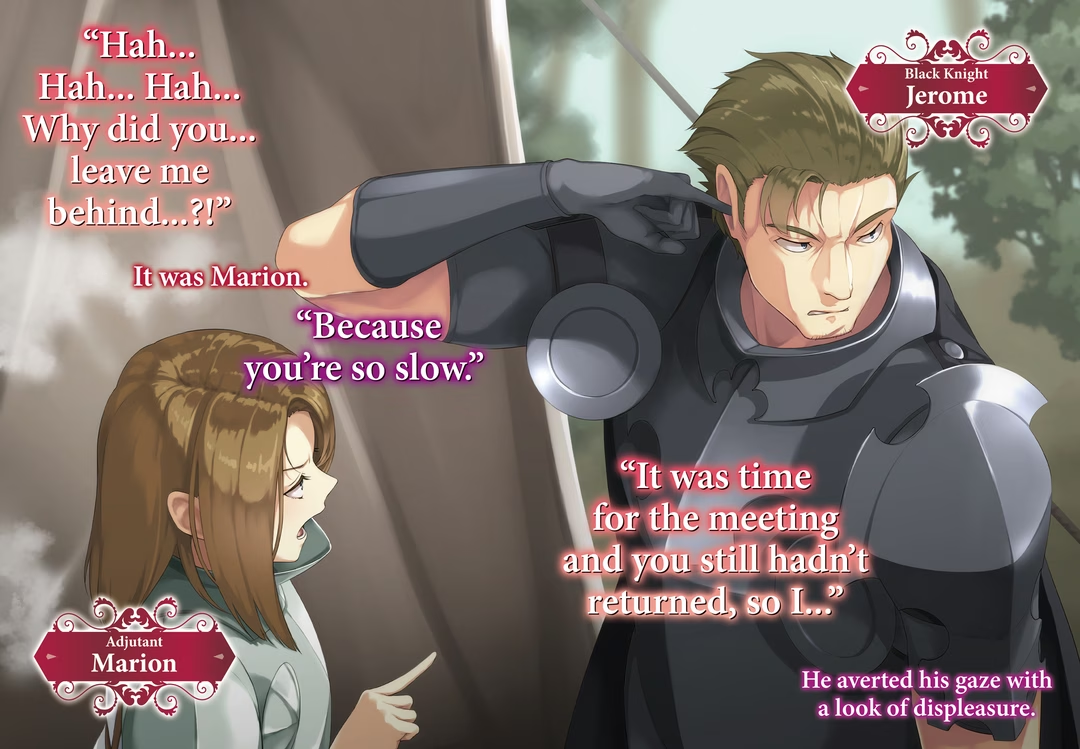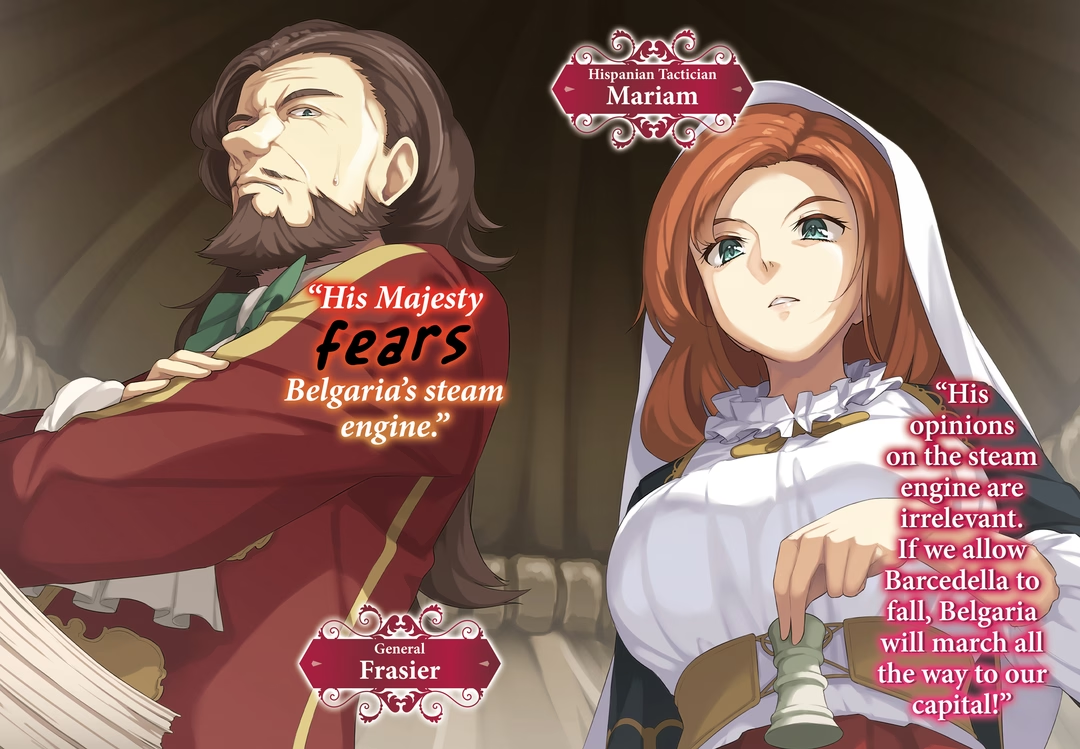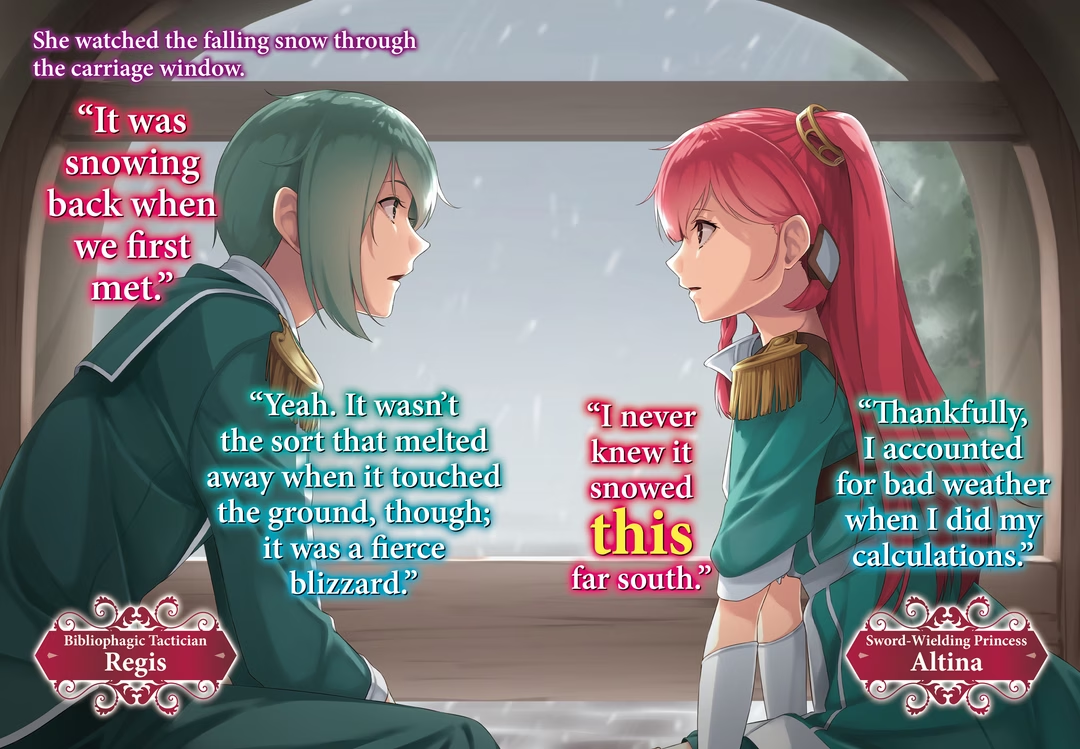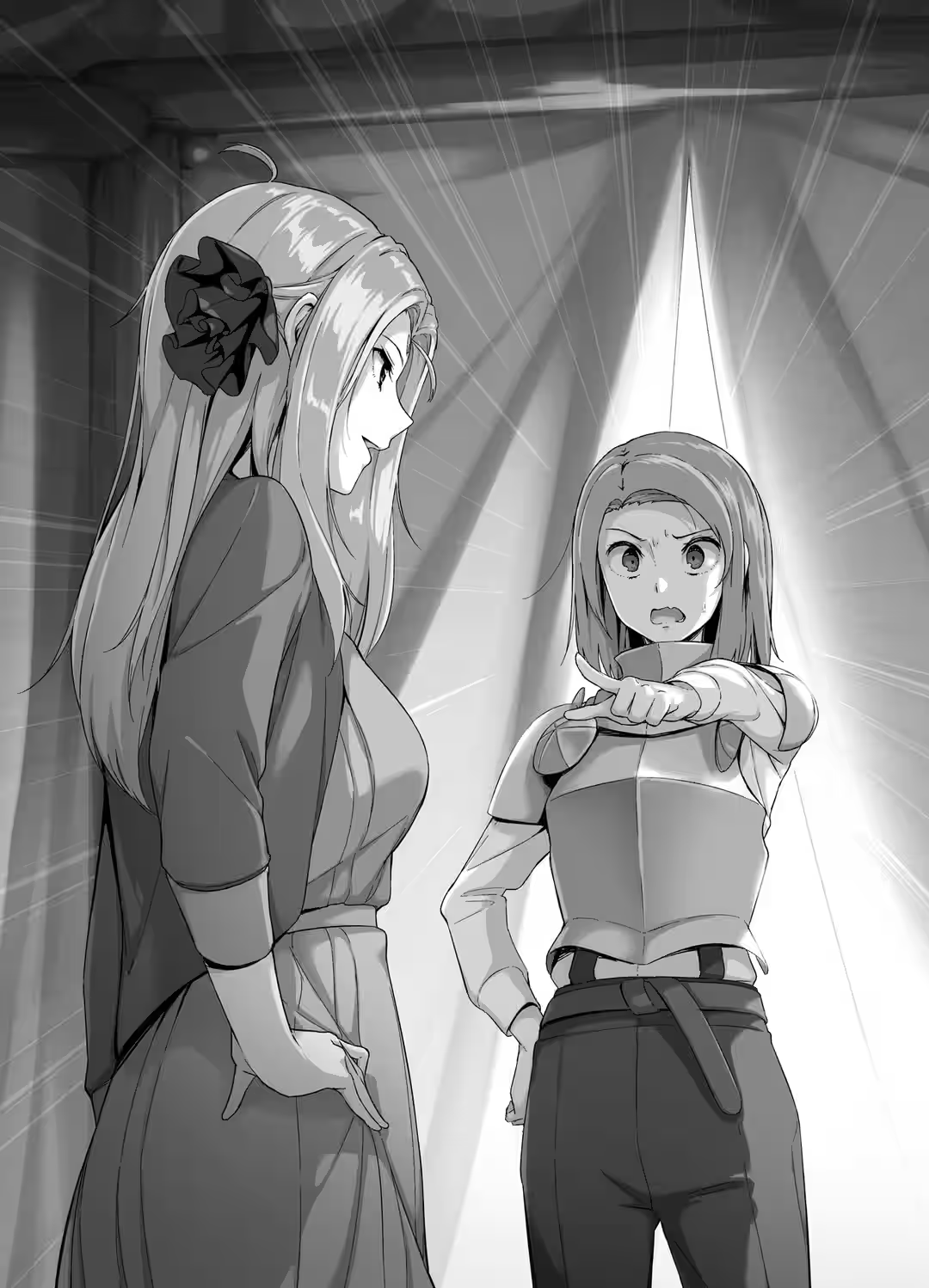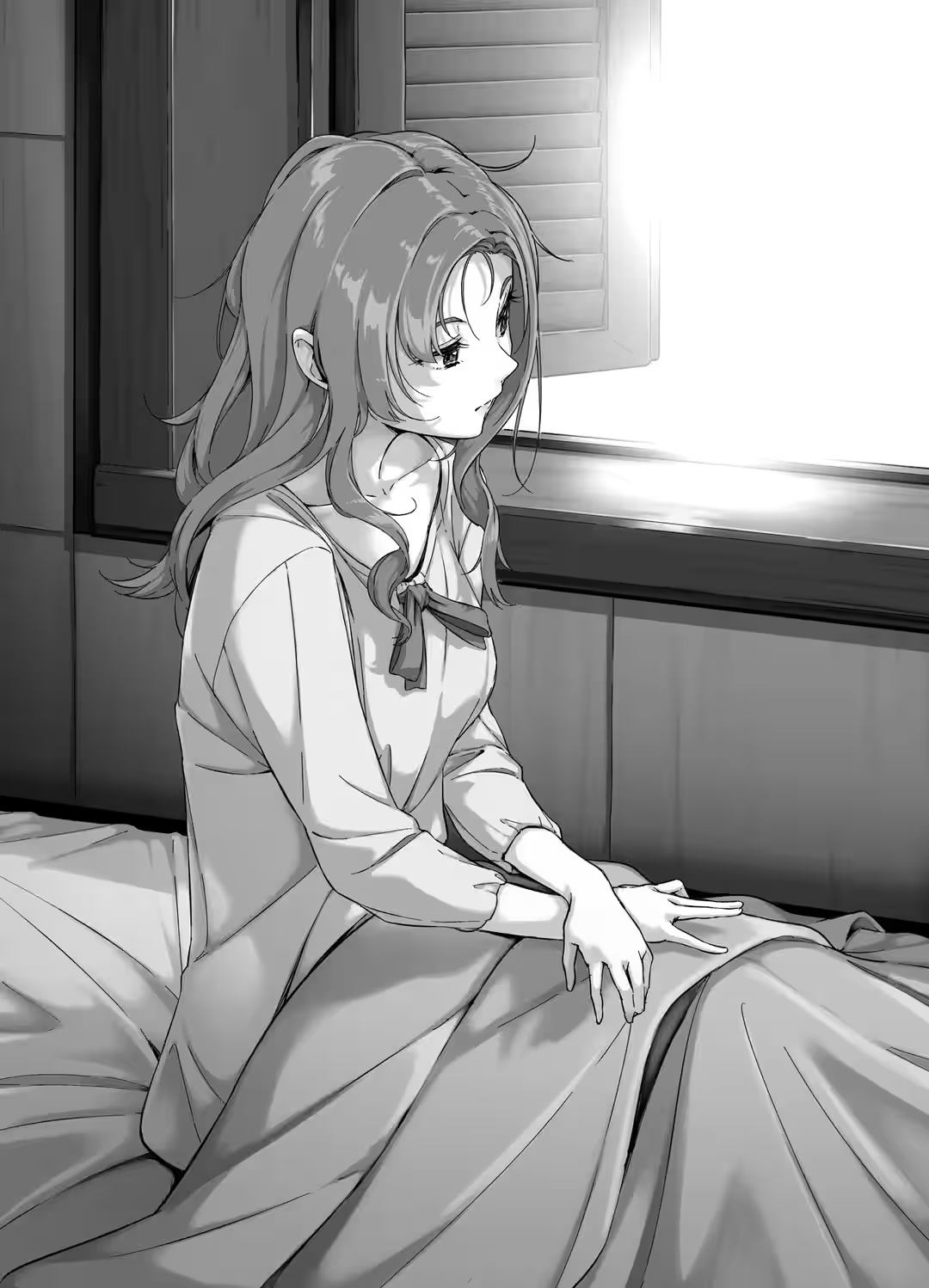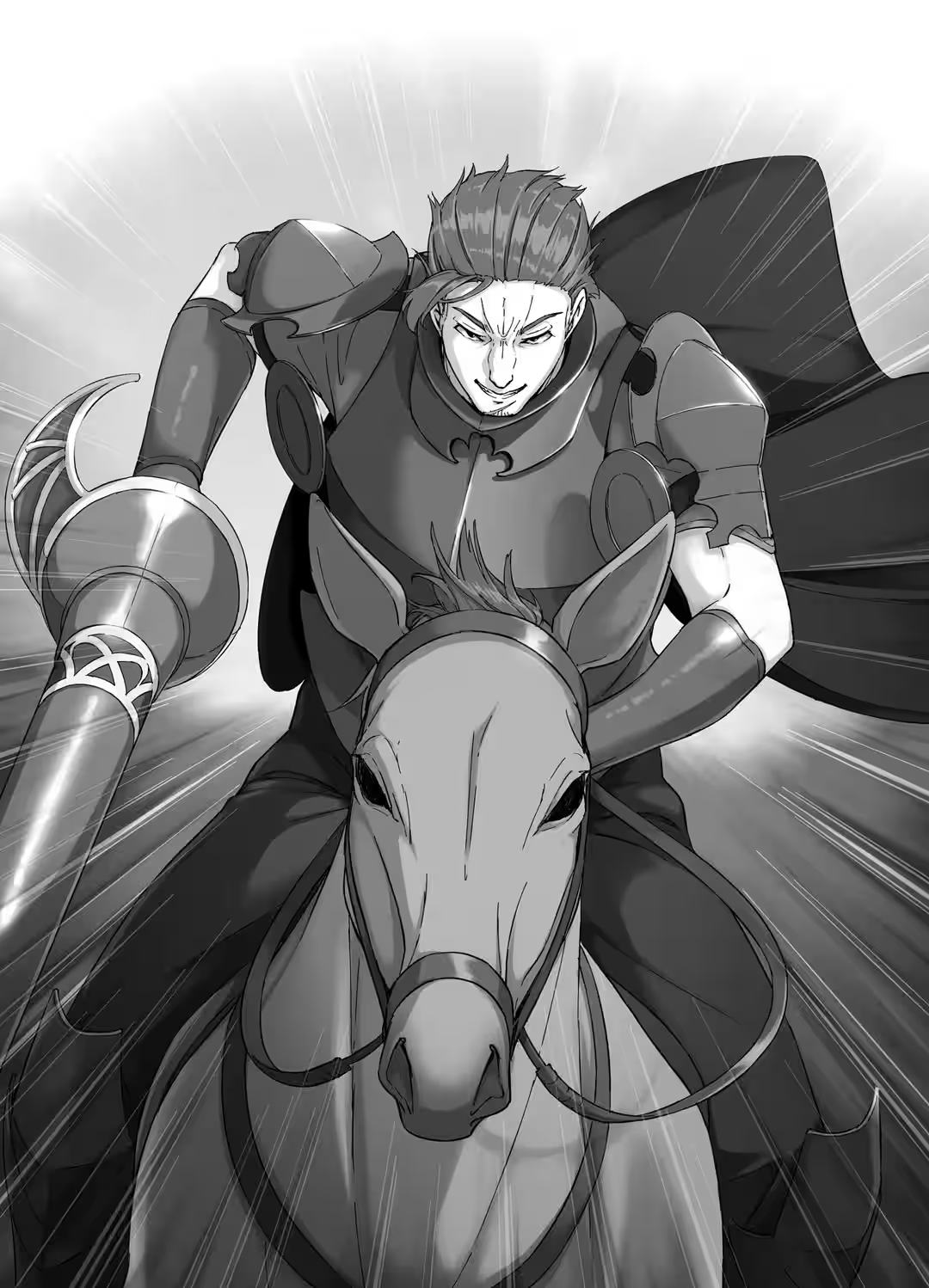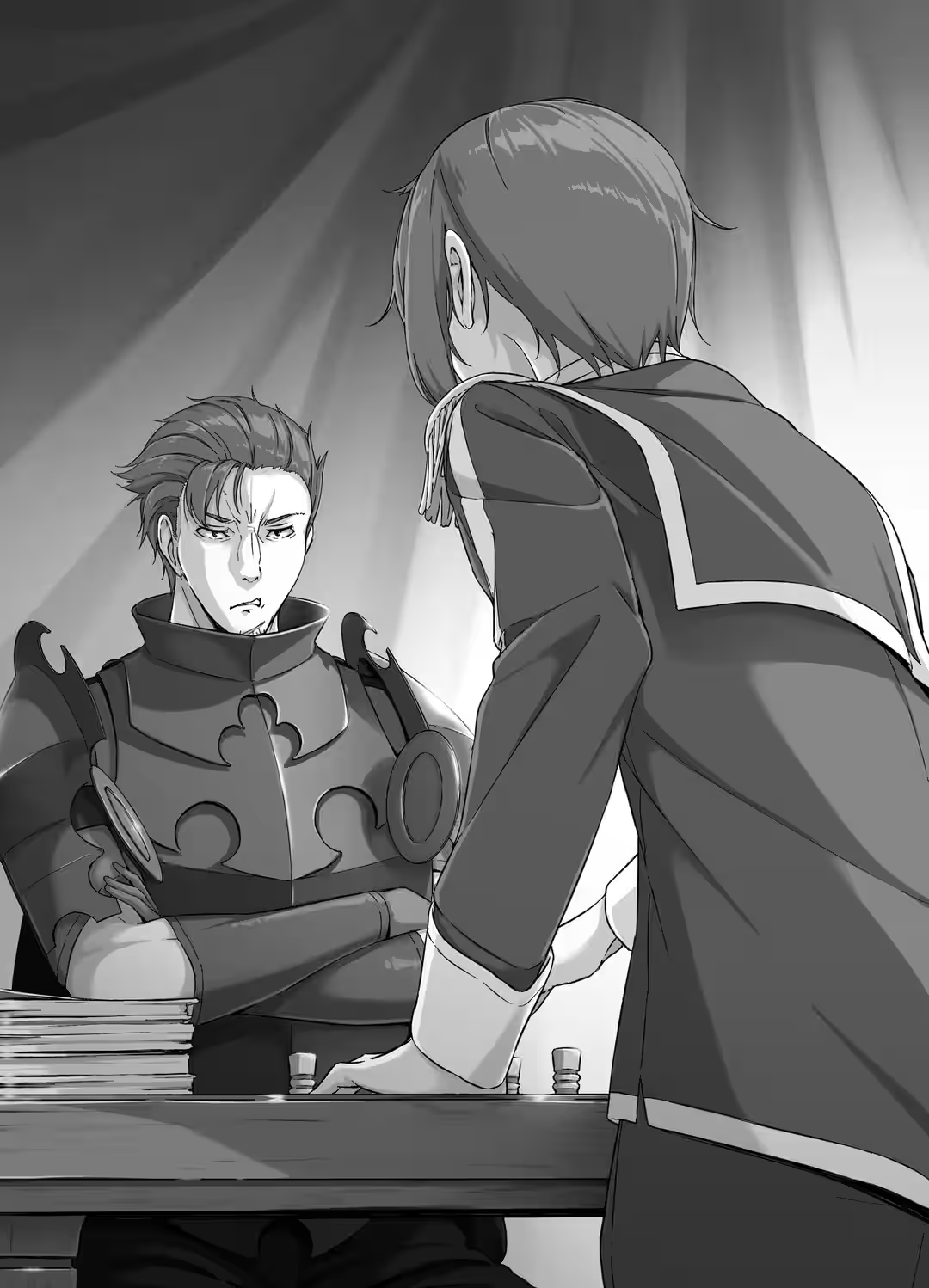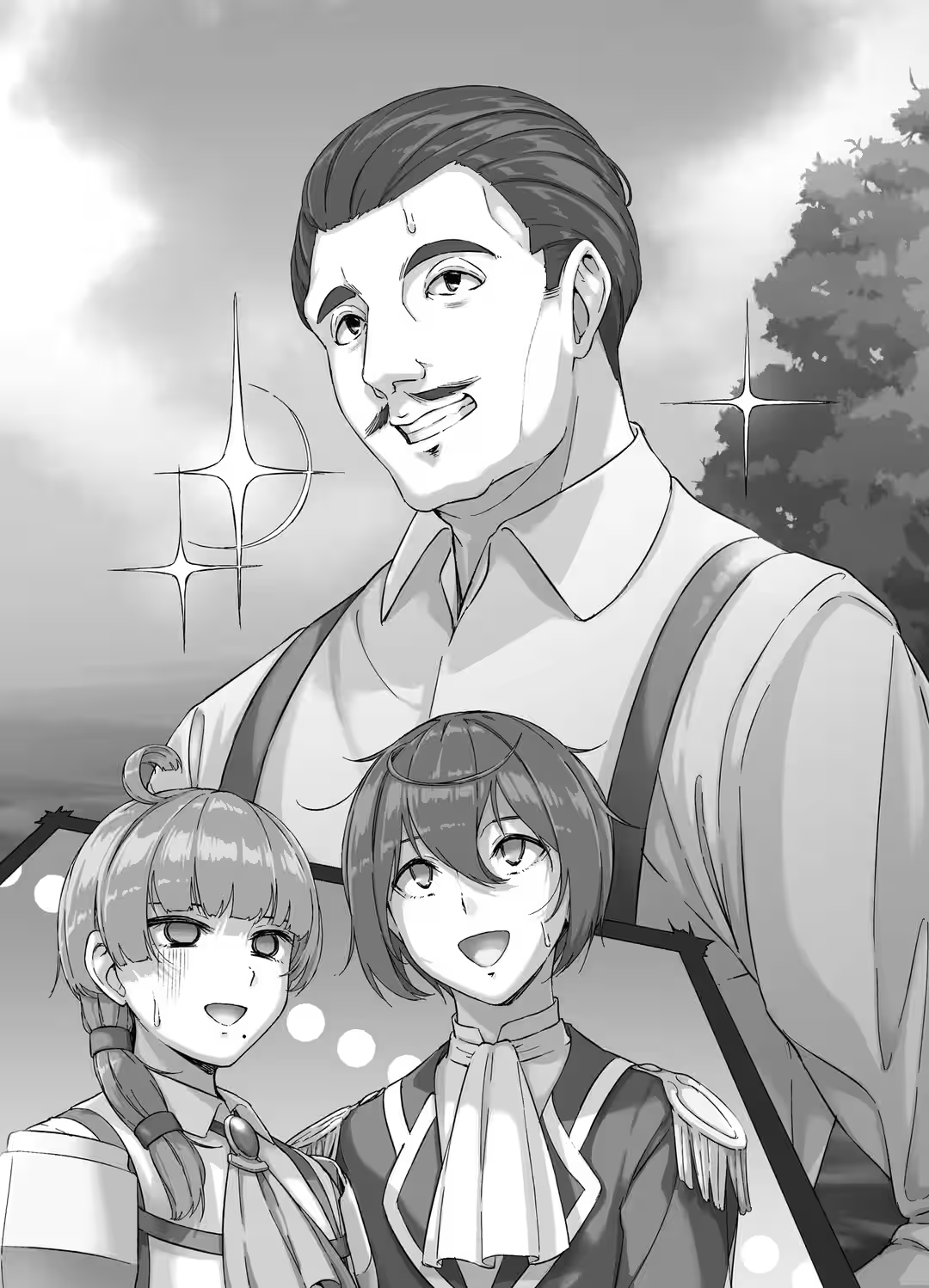Chapter 4: The Siege of Quintanal
“His name is...Regis d’Aurick. Their tactician, I mean.”
Mariam nodded in response. She held a pen in her right hand, as per usual, but for once, her left was not moving around a game board. Instead, she held a fork. Many commoners in Hispania still ate with their bare hands, but Frasier hailed from a comital house and ensured that Mariam had at least the most basic table manners.
Frasier was relaying what had been said in the command room. Although Mariam’s opinions were highly regarded, she was a woman and a civilian, meaning she had no place in a war council.
“Despite being a commoner and an administration officer, this Regis fellow was personally selected by the fourth princess,” Frasier continued. “He conquered a Germanian fortress that had held strong for forty years and then drove back High Britannia’s Royal Army—or so they say. He’s now a chevalier and strategist of the Belgarian généralissime.”
“That sounds like Belgarian propaganda.”
“It very well might be. It sounds too contrived.”
“At least, that was my initial thought...but there may be some truth in it. He did a brilliant job of capturing Barcedella.”
Frasier grimaced. “The naval commander said it looked as though there were two fortresses. I didn’t think such a feat was even possible.”
“There was one past record where torches were tied to long spears to make a dinghy appear like a mighty warship.”
“One was the real fortress; the other was the attacking army. Still, I would have thought it easy to tell which one was real. Simply look to see which is moving.”
“Ships on the open sea drift in the wind, so it can be hard to tell whether things on land are actually moving or the ship is.”
“Well, I guess that makes sense...”
“We must give our thanks to the admiral who decided to wait and watch because he couldn’t act with conviction. Had the ship’s cannons bombarded our fort, we would have lost our chance to escape.”
“R-Right.”
A single miscalculation and Frasier would not have been alive to grumble as he was. The very thought made him shudder. Perhaps Mariam would have seemed a little more endearing if she had cowered in a similar manner...but she was continuing to write with one hand while indifferently ferrying mashed potatoes into her mouth with the other. She could not help but write, considering that she was unable to speak, but this was far from the proper conduct of a noblewoman.
They were at Frasier’s residence in the capital, eating a slightly late supper. Frasier had gotten his wife to evacuate to her hometown; he did not believe the capital would fall, but public order worsened in times of war, and there was a chance the battle would be a prolonged one. Perhaps food stock would run low or they would run out of other supplies. Frasier was a soldier who could endure it, but the last thing he wanted was having to pacify his displeased wife on top of everything else.
Mariam was originally meant to have evacuated as well, but her guidance was too important. She started prodding at paella with her left hand as her pen raced across the page. “His Majesty did not move any soldiers from the capital.”
“Just so you know, I did make the proposal, but His Majesty and his advisors were adamant about there being a siege.”
“How idiotic.”
“Hey now...” Frasier said in a low voice. They were in his house, but there were servants to be cautious of. Most had been dismissed in preparation for the war, but a few were still working. One anonymous report and his commanding role—not to mention his life—would be at risk. However, Mariam did not seem the least bit anxious. She was either dauntless or dense.
“The commanders seem to be fearful of something.”
“This is just a rumor...but the Belgarian Army is said to have prepared some powerful siege weapons. I’m sure they’re preparing countermeasures against them.”
“That’s absurd. If the Belgarians had such things, they would have used them against Fort Barcedella.”
“Maybe they’re concealing their trump card.”
“Belgaria definitely has some siege weapons—I do not doubt that. It is quite conceivable from the amount of supplies they were carrying.”
“The advisors came to the same conclusion.”
“Then we should not let our foe approach the capital.”
“I tried to say that. Honest.”
To put it simply, too many officers and soldiers had fallen on the roads and forts in Belgaria’s path—around thirty thousand men in total. Now, the enemy was only half a day from Quintanal. They could even be there that night.
“They’ve marched for half a month, though, so I’m sure they’ll need a breather.”
Mariam looked as though she had something to add, but Frasier pretended not to notice and shoved a sausage in his mouth.
“Had our commanders severed the Belgarians’ supply line while we were stalling them at Barcedella, the invaders would have been forced to retreat.”
“Maybe,” Frasier replied through a mouthful of sausage. “But maybe not. Maybe the Belgarians would just—nom—ignore their rear line and attack the weakened capital.”
Just the year before, the High Britannian Army had made it deep into Belgarian territory. Even when they lost their supplies and their fleet, they had pressed on. According to the reports, they were ultimately beaten by Marshal General Latrielle, who was but a prince at the time. Perhaps the Empire would do the same against Hispania.
Frasier swallowed the food in his mouth. “The fact that Barcedella fell quicker than expected is another reason why our executives are in such a hurry to fortify Quintanal. It’s far from easy for someone in my position to propose any assertive measures.”
“Belgaria had to conquer that fort as quickly as possible. And yet, they spent so much time.”
“So you’re trying to say they don’t have any powerful siege weapons? But what if they’re just saving them? I suppose that, with sixty thousand soldiers in Quintanal, we won’t lose even if our defenses are breached. We surpass the Belgarians in numbers and supplies.”
Hispania would not lose as long as its emperor remained safe. In this situation, they simply had to protect the capital.
Frasier stabbed his fork into a cut of meat. “Come to think of it, couldn’t it have been Regis’s plan to spend so long at Fort Barcedella? Prompting reinforcements from Quintanal would take away his numerical advantage. Indeed, couldn’t that have been the enemy’s intention? Sixty thousand soldiers before His Majesty—nothing can be more reliable than that. At least, that’s what the advisors say.”
Mariam nodded and then wrote, “I’ll keep that in mind.”
“You seem displeased.”
“Had this been my call to make, I would never have given that tactician the chance to choose his means of approach. There’s no telling what he’s plotting. It’s much too dangerous.”
“That’s what we’re preparing for.”
“When the enemy’s next move is unknown, trying to prepare for everything is a poor response.”
“You think so? I see that as the fundamental theorem of defense.”
“Father, the fundamental theorem of war is to win without a fight. And if not that, the next best thing would be to win without giving the enemy a chance to do anything.”
“Yes, but reality never works out so conveniently.”
“We could send ships around and pincer the Belgarian Army with twenty thousand soldiers from both sides, all while keeping twenty thousand in the capital. That would limit the options of even the most prodigious tactician. It would afford us the initiative.”
“A fine strategy—but one the command room will never accept. It just occurred to me, but why did you never propose this while we were in Barcedella? Severing their supply line, I mean.”
“You’re growing forgetful, Father. We had fifteen thousand soldiers at the time. How many reserves did our attackers have?”
“Right... Twenty thousand.”
There was no guarantee that Belgaria would invest all its reserves into defending its supply unit, but either way, it would have been difficult for those at Barcedella to succeed with what they had available at the time. This was a tactic that was only effective with sixty thousand soldiers to spare. It was impossible to sever Belgaria’s supply lines by half measures, but Hispania’s commanders would never permit the use of such a large force.
Frasier raised the piece of meat skewered on his fork and declared, “Well, so be it. This battle is Hispania’s victory. Belgaria has marched deep into our territory and exhausted themselves in the process. Quintanal is a sturdy, expertly fortified city, and we have enough troops to defeat our foe on the open plains. The surrounding seas are lined with our warships.”
“So, our preparations are perfect?”
“Precisely.”
“And Belgaria is marching upon us, fully aware of that?”
“Belgaria’s new emperor is a young military man. At his order, his armies will advance as far as they can. And no soldier can disobey their commands—that much is true in any nation.”
“A plebian may do only what they are told, but a hero will prevail in the face of adversity.”
“Well, there won’t be any heroes on this battlefield. Half a month, perhaps—the Belgarian Army can’t maintain their forces for much longer than that.”
Perhaps the Belgarians would receive supplies from their home country, but it took a considerable amount of money to send those units back and forth with guards. The Hispanian Army had no such problems—even if all their roads were blocked, they could still rely on their sea routes. Quintanal was continuing to receive ships filled with goods.
“And who knows? We might even reach an accord if we glare at each other long enough.”
“Indeed; that might be possible.”
“I’m assuming Belgaria will demand all of the land up to Fort Barcedella—not that His Majesty will concede even the smallest piece.”
“A mere soldier has no say in the negotiation. There’s no need to think about it.”
“I might get some time off once the war is over. An excellent chance to kick back and relax in the countryside. I’ve never much taken to the capital.”
“Father, you haven’t been fired just yet...”
“I’m talking about a normal vacation! I may have lost some men, but I haven’t failed severely enough for them to dismiss me!” Frasier shot back, speaking so passionately that minuscule food scraps spewed from his mouth and onto Mariam. She frowned as she wiped the spittle off with a napkin.
“You claim that a hero won’t appear, but who can say for sure? Father, you simply must fight off the Belgarian Army.”
“What are you talking about? We barely have over ten thousand men. We’re just reserves here.”
“This is your chance to recover your lost ground.”
“No, seriously. I haven’t been demoted either.”
Close to twenty thousand soldiers were lost at Barcedella, but Belgaria had forty thousand. Frasier’s men had successfully stalled for time.
Mariam stared at Frasier. “Are you satisfied with your current treatment? Are you fine with having been treated as a sacrificial pawn?”
“Erk...”
“If not, I can offer you a plan.”
His daughter’s incredibly condescending attitude was irritating to no end, but... “I’m willing to see what you have in mind, at least.”
✧ ✧ ✧
Belgaria’s expeditionary force set up camp around three lieue (thirteen kilometers) from Quintanal—a three-hour march, by their estimate. A large quantity of water was required for a certain plan, and considering how they needed to sustain forty thousand soldiers, they had chosen to settle on the banks of a lake.
Quintanal was to their south, and the lake to their east. Across the highway to their west lay the open sea, and to their north was a vast, open plain with an orchard. It was a pity, but they had nowhere better for their base of operations. The owner had already run away, so the estate was being used as a medical office.
That afternoon—
A man arrived at Regis’s personal tent—which was pitched right beside the army’s strategic headquarters—carrying a hefty wooden crate. “It sure is hot around here...” he remarked as he set the crate down beside the tactician’s desk and wiped the sweat from his brow.
“Thanks for everything.”
His visitor was none other than Ferdinand Stuttgart, captain of the Belgarian sappers. “This area is always supposed to be this hot, even in the winter,” Regis replied as he moved the book that lay open over the map. “That snow was a special case.”
“That’s good to hear. Especially cold weather would only delay our work.”
“As for the location...” Regis prodded at a point on the map. “I think here should be optimal.”
Ferdinand nodded. “I’ll have to agree with you there. I investigated the soil on the way here. It seems moderately firm, although we won’t know for sure until we start digging.”
“In that sense, we’ve got no time to waste.”
“I’ll start prepping at once, then.”
“I’m counting on you.”
“Here are the details and the schedule.” Ferdinand took a bundle of paper from the wooden crate at his feet, which Regis took and scanned.
“Nicely done.”
“Thanks,” Ferdinand replied with a self-assured chuckle. “The enemy’s in for quite the surprise.”
“Yes, they are. And if they’re surprised enough to raise the white flag... Well, that would make our job a lot easier.”
“Do you think there’s a chance?”
“In truth...it won’t be that simple. Hispania is more than accustomed to a constant state of war—albeit not quite as much as Belgaria. These battles have mostly been by sea, but these past hundred years, they’ve continued to grow by conquering all their neighboring powers.”
“Certainly.”
“For what it’s worth,” Regis said, “I’ll try to ensure we don’t lose too easily. But...”
“I’ll make sure we’re done in a hurry.”
“Ah.” Regis scratched at his head. “To be honest...I want you ready to flee at a moment’s notice.”
Ferdinand was taken aback for a moment, then he burst into laughter. “Bwah hah hah! There you go again, Tactician!”
“I’m not joking.”
“Hah... I hear you loud and clear.” Ferdinand gave a crisp salute. “I’ll make sure we’re done in a hurry—and that we’re prepared to run.”
“Much obliged.”
It was December 10th, in the year 851 on the Belgarian imperial calendar.
On one side of the conflict stood forty thousand of the généralissime’s expeditionary force, alongside the ten thousand who had transported their most recent supply haul. On the other side were sixty thousand men mustered from key points across the land, working under the direct orders of the Hispanian emperor. Their capital city had never been breached from the day it was founded.
Over a hundred thousand were prepared for combat, and with that, the curtain slowly rose on the Battle of Quintanal.
✧ ✧ ✧
The Belgarian Army’s plan hinged on Ferdinand and his construction team, while the Hispanian Army decided to wait until their foe exhausted themselves. Neither side moved to meet the other, and ten days went by without a single engagement.
Early in the morning—
Frasier yawned as he popped his head into the dining hall. Bread, soup, salad, and cheese—the selection and quantity were no different from what he would enjoy in peacetime, perhaps owing to his position in the military. The same could not be said for the quality, however. Although the cooks were using their ingenuity to cover it up, the bread was darker, and a peculiar scent wafted from the salad.
Hispania’s sea routes were secure, but it was no simple task to provide for sixty thousand soldiers. And to add insult to injury, their scheduled supply shipment had never arrived. The resentful cries from the logistics officers of every unit grew louder by the day.
“Just as expected,” Frasier muttered. “This is going to be a long battle.”
Surprisingly, Mariam was already in the dining hall. She wasn’t even in her nightgown—for once, she was dressed somewhat like a lady. Upon noticing Frasier enter, she pointed out the window and went, “Mnn!”
“What?”
“Mm!” She began slapping her hand against the glass.
“Is there something...stuck to the window?” Frasier ventured. His suggestion was met with a look of sincere disappointment from the young woman, as though she had completely lost faith in any intellect he may—or may not—have had. “I’m not even allowed a joke, eh...?” he asked with a shrug and then headed over.
The window was in the perfect position to watch Belgaria’s encampment—not that there was much they could see from over two legua (eleven kilometers) away.
“Smoke?” Frasier asked, his eyes narrowed. Black clouds were billowing from the enemy camp, and far too much to be explained away as breakfast preparations. “Arson, maybe?” He turned to Mariam, who was now regarding him with a look that seemed to question whether he was of sound mind. “Again, it was only a joke,” he said. “Our scouts are diligent. A simple trip to the command room should reveal whatever’s happening at their campsite.”
Mariam took a sheet of paper resting at the edge of the dining table and smoothly wrote, “I’m coming too.”
“Don’t be absurd,” Frasier replied. “I can’t bring a civilian to the palace with me.”
Mariam’s shoulders dropped. She had enough common sense to know that accompanying Frasier was out of the question, but it seemed that she had thought it worth a shot anyway.
Frasier pulled out a chair for himself and took a seat. “Come now, Mariam. We mustn’t miss our premeal prayer.”
It was midway through this prayer that a butler entered, bearing an express message. Frasier took and unfurled the document, which had come from the command room.
“Mm... Mnn...” Mariam glanced over curiously as she made her way through a mouthful of cheese.
According to the message, due to changes observed in the Belgarian Army, Frasier was receiving an urgent summons. This much was to be expected, but there was a section that made him doubt his eyes—he was to attend “alongside Mariam Ruiz Jiménez.” He read the passage a second and then a third time before turning his gaze to the girl in question. “You haven’t done anything...have you?”
“I don’t understand your meaning.”
“His Majesty wants to speak with you, apparently. But why...?” Frasier wondered aloud. In an attempt to keep any unwanted attention away from Mariam, he had only told his close aides in the army about her. “Ghh... Did someone set this up?”
Mariam’s face suddenly lit up. In an instant, her pen was racing across the page. “His Majesty is wise indeed.”
“R-Right...”
“And to think I thought him a complete fool. It seems I’ll need to reevaluate that opinion.”
“I told you not to write things like that!” Frasier snatched the paper, scrunched it up into a ball, and then threw it into the dining hall fireplace. His breathing was heavy. “Do you understand our position?! Those folks in His Majesty’s command room aren’t as understanding as I am! If they detect so much as a whiff of insolence from you, we’ll both be sent to the gallows!”
“Calm down, Father.”
“And in the first place—!”
“Do you really think someone who knew about me spread word to His Majesty to ruin your standing?”
“It’s...possible.”
“I think you’re forgetting something important.”
“Hm?”
“You’re not really worth the effort to—” Mariam began to write but stopped when she saw Frasier clenching his teeth. She struck her chest in a show of confidence. “Fret not. I thought this might happen someday, so I had Grandfather teach me the proper etiquette to take before His Majesty.”
“That’s exactly why I’m worried.”
Even so, it was a direct order. Frasier needed to take Mariam to see the emperor whether he wanted to or not, and with that thought, he let out a deep sigh.
✧ ✧ ✧
At the center of the Hispanian royal palace was a grand tower, like a spear thrust toward the heavens. It had belonged to a cathedral, once upon a time. The other sections of the palace had been constructed around it, and the interior took on quite a religious motif—the halls were adorned with countless paintings and carvings of sacred scenes. It was said that the most pious believers would break into tears upon witnessing it, and yet...
It’s quite dreary, to be honest.
Frasier’s opinion of the royal palace was no different from when he had first set eyes on it. He was by no means a nonbeliever, nor was he critical of the emperor’s rule—he just wasn’t certain about the palace itself. God, the same almighty creator the priests always spoke about, would never dwell in such a stiff and ceremonious place, he thought. If such an all-powerful being took greater comfort in the gloomy and austere, why would he have given the world such sublime scenery? Why would he have given form to such dynamic beasts, or produced such lively tunes? Indeed, this was no place of God. Frasier’s father had once made this clear to him.
Thinking back on it now, I’m pretty sure the old man was a heretic...
Frasier glanced beside himself to see Mariam staring around curiously. “Don’t act too suspiciously,” he warned.
Mariam nodded in response, but she made no attempt to disguise her interest.
They had been called to a war council, so they were headed not to the audience chamber but the command room. A guard opened the door for them, revealing an interior that was notably Belgarian in style—the tables and chairs were covered with intricate detail, although these, too, had very religious undertones, reflecting the pious people of the land.
The generals were already gathered in the room, and the oldest serving one immediately turned to them. “Sir Frasier. You’re late,” he said admonishingly.
“My apologies,” Frasier replied. “The request came quite suddenly, and it took some time for my daughter to get ready.”
Mariam stared at him. He had been so against bringing her to the royal palace that he had tried coming up with one excuse after another to turn down the request—and the next thing he knew, they were running late. The blame ultimately rested on his shoulders.
“So, she’s...”
“The granddaughter of the Great Warmaster.”
Murmurs came from the ten-odd officers glancing at Mariam. Soon, the old steward informed the room that the emperor would make his entrance, prompting everyone to stand. An exclusive door opened in the back, and a slender, emaciated man appeared.
This was Amador Alneraz Otello, the emperor of the Hispanian Empire. He was a white-haired old man wearing an equally white cap and a silver outfit that sparkled ever so subtly. Belgarian royalty preferred the color red, but Hispania took pure white, as reverence to the Lord above.
The emperor took a seat, and the officers followed. Frasier was practically at the foot of the table, with only Mariam sitting farther down than him. She began to ready her ink and paper on the table, then picked up her pen. Her condition had already been conveyed to everyone present.
“I am humbled. It is my greatest honor to be granted an audience with His Majesty.”
Written like a true soldier, Frasier thought. He was growing anxious, although he refrained from letting it show. Mariam’s message was passed to the old steward, who then presented it to the emperor.
A smile creased the emperor’s already wrinkled face. “How very nostalgic,” he said. “When I first met with the Great Warmaster, he gave me those very same words.”
The emperor was a man who never showed his true intentions, but he was smiling on the surface, and that was enough to relax the mood for the time being. Frasier thought it necessary to warn the room that although Mariam was wise due to her grandfather’s influence, she was still only a child. Before he could speak, however, another officer raised a hand.
“We received a vital report,” the man said. “The Belgarian Army has taken action.”
Frasier lowered his half-raised hand. The enemy’s movements were the most pressing topic of the morning—he couldn’t just interrupt to talk about his daughter.
“The enemy dug a pit at their campsite, filled it with fuel, and set it on fire,” reported the plump lieutenant in charge of reconnaissance. It seemed that not a soul understood what these actions meant.
“What do you think they’re doing?” the commander in chief asked.
“Ahem.” The lieutenant cleared his throat and then said, “Well, our engineering consultant suggested it might be a blast furnace.” Despite this intel, he sounded equally as confused as everyone else.
“A blast furnace?”
“Yes. To process iron. The color of the smoke confirms that they’re using coke as fuel. They seem to be molding iron, drawing water from the lake to regulate the temperature.”
Unfortunately, this explanation only deepened the mystery. “Are they making cannons in the middle of a war?” muttered another officer—a man who had stayed silent up until that point.
“Do they intend to build a fort?”
The officers were taken aback. If the Belgarians constructed a fortress at their current location, Quintanal would lose its function as a center of commerce. Everything behind that new landmark would effectively be under Belgarian control without the need for any negotiations.
Talk about a vile plan.
Mariam scoffed—a reaction that made almost every man in the room turn to her with sharp eyes. Frasier feared that his heart was going to stop, but the young woman, completely indifferent to the shifting mood, started racing her pen across paper.
“They cannot conceivably build such a thing. The Belgarian Army strives to never lock down its lines and to always press forward. The soldiers have homes and families to return to. If our foe constructed such a fortress on enemy soil, how many soldiers would need to occupy it, and where would the funds come from? We are dealing with a superpower, yes, but its funds are not unlimited. We should be able to estimate how much money and how many men they can invest in the war from the information we already have. Are you really thinking about this?”
“My apologies,” said the officer who had made the fortress suggestion in the first place. He gave a bow and then stood down.
“In that case,” the commander in chief pressed, now exuding a tremendous intensity, “what do you think about the enemy’s movements, Sir Frasier?”
“Huh?!”
What’s this got to do with me?! I’m just...
Mariam was attending as Frasier’s daughter, so she was being treated as something of an adjutant to him. Paying little heed to her father’s stomach pains, she answered, “I can think of no precedent, meaning it must be an unknown.”
“What?!” the commander in chief exclaimed. “After talking so big—well, writing so big—how can you say that you haven’t a clue?!”
Mariam raised a hand to silence him. It was a bold move, and some of the officers swallowed their breaths as they waited to see what she would put forward next. She was a fast writer, but her method of communication still took longer than it would take the average person to speak.
“The enemy’s plan is unknown, but we know they have a plan. They will not be able to transport a blast furnace, so if we can send troops to drive them away from that site, we won’t have anything to fear.”
“You’re proposing that we leave the capital and fight?”
“I consider it preferable to sitting and waiting for the enemy’s plans to come to fruition.”
Those gathered exchanged feverish glances and started whispering with their neighbors. It was quite an uproar, and throughout it, Mariam continued to write.
“The Belgarian Army must have anticipated this situation before the war even started. Do we have any basis on which to say the grand contraption this wise tactician appears to be setting up is but an empty bluff? The details may be unknown, but the potential threat to our capital remains.”
All of a sudden, the old steward suddenly raised a hand. The room fell silent, and only then did the emperor speak.
“Even if we mobilize all of our forces, will we be able to fight off the Belgarian Army?”
“If you would allow my perspective,” the commander in chief said, “even with sixty thousand, I do not believe we can best them. Our guns and cannons are painfully inferior, and our infantry and cavalry pale in comparison to theirs.” He then noticed the deepening furrow in the emperor’s brow and added, “Hispania is the strongest nation at sea, though! Our navy has never seen defeat, not even against High Britannia’s steamships!”
Well, no...but isn’t that because we’ve never exchanged fire with them?
Hispania’s warships were exceptionally mobile, but they were also smaller and weaker than foreign models. By estimate, they were roughly twenty years behind Belgaria and High Britannia. To compensate for this, the Hispaniards made their ships cheaply and at a much faster rate, and their navy took great care to size up their opponents before a battle. They masqueraded as pirate ships and attacked merchant vessels—although they would never say as much on the record. It was as a result of these rather dubious actions that the Belgarian Army had marched right to their doorstep.
“Quintanal will not fall as long as we have our sea routes,” the emperor declared, nodding in response to the commander in chief.
“It is my pride and joy to receive these words of wisdom,” the man replied, his head reverently lowered. “We shall not allow the enemy’s plan to perturb us, and we shall stake our lives to defend the capital.”
The emperor drew a cross in the air. “May you go forth with the grace of our Lord.”
Soon, the officers were all voicing their praise to God. Frasier was naturally among them, and when he glanced to his side, he saw a note from Mariam that had yet to be shown to the others.
“Even if we cannot win, we can force them from their current base of operations. If our enemy is so focused on this grand contraption that they would abandon their mobility, it should be possible to use that against them. Use their conceit to destroy their ranks.”
Frasier snatched the paper away in the blink of an eye, before anyone could see it. Mariam gazed up at him, firmly biting her lip, but he merely placed a gentle hand on her head.
✧ ✧ ✧
On the twentieth day of the Battle of Quintanal—
Ferdinand was three days ahead of schedule when he completed the task assigned to him, and no sooner had the man finished than he collapsed on the spot.
“Mr. Ferdinand?!” Regis exclaimed as he frantically raced over.
Eric came with him and dropped to one knee beside their fallen comrade, his eyes wide. “He’s...asleep?!”
“Well, I suppose he has spent many sleepless nights...”
“Should we let him rest, then?”
“Hm... Can they fire properly?”
Ferdinand’s eyes snapped open. “Of course they can!”
“Ah. You were awake?” Regis asked.
“Of course I was! There’s no time for me to lie around. Now please, Tactician, come and see!”
“He was definitely asleep,” Eric whispered, sounding concerned, “so why would he deny it?”
“I don’t think it was intentional,” Regis replied. “He didn’t seem to have even noticed that he lost consciousness. After so many all-nighters, he must have just passed out.”
“Oh no...”



